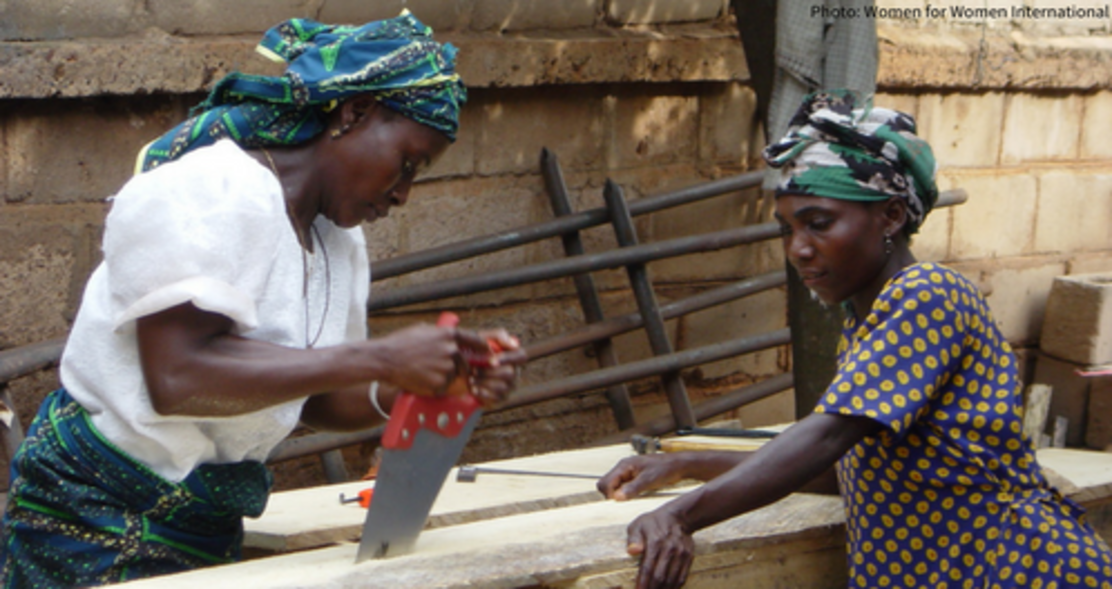Women at Work: Time to Address Gender Gaps

By Denise Marinho do Santos, Communications Officer
Brasília, 8 March 2018 - The new issue of the Policy in Focus magazine, titled "Women at work: addressing the gaps", tackles the significant barriers women worldwide face daily to engage as full economic citizens. Produced in partnership with the Canadian International Development Research Centre (IDRC), this special edition is presented by specialist guest editors Carolina Robino (IDRC) and Raquel Tebaldi (IPC-IG), and features 15 compelling articles by world-renowned policy specialists and practitioners. Its launch celebrates International Women's Day.
The United Nations Sustainable Development Goal 5 seeks the achievement of gender equality and the empowerment of all women and girls. Over the last decades, societies in general, and women and girls in particular, have seen unparalelled progress in the fields of education and health. There should be a virtuous circle between women’s economic empowerment and sustainable development. However, gender gaps in wages and labour market participation are still significant. According to UN Women’s executive director, Phumzile Mlambo-Ngcuka, “the gender pay gap reflects the unjustifiably diminished position of many women in society and helps to keep them there”[1]. In many parts of the world, women face hurdles and lack the necessary assets to become entrepreneurs and income inequality contributes to the perpetuation of gender gaps.
This publication addresses a crucial aspect of women’s economic empowerment: labour market participation. Not all kinds of work entail positive outcomes for women, as they face challenges in pursuing well-paid, productive jobs that enable them to accumulate assets. Women’s time use will remain constrained if deeply rooted social norms, such as regarding housework and child-care responsibilities are not shared by other household members.
The issue opens with a theoretical discussion about the feminisation of work, and the links between female labour market participation and women’s economic empowerment. An overview follows of the trends in gender gaps in labour participation and pay, promoting a discussion of the determinants of these trends. Articles then go on to examine specific policies and interventions to assess their good practices, limitations and unintended effects. The authors do not simply consider potential solutions to address inequalities within labour markets, but also examine a leading form of inequality which is generated outside the labour market: the unequal distribution of unpaid care work within the household. Also contemplated is the role of social norms, to both explain the supply and demand of women’s labour and highlight the need for change in the interest of fostering gender equality.
With “Women at work: addressing the gaps”, The IPC-IG and the IDRC seek to further inform the debate on gender equality, as well as provide evidence for policies that can help empower women and remove barriers to inclusive growth
We also invite you to read
“Social Protection: towards gender equality” - This edition covers key themes related to gender equality and social protection and has a wide range of contributions from women academics and policymakers.
'Protagonist women" - This special edition of Policy in Focus magazine highlights examples of women taking initiatives in an antagonistic society. Women protagonists exist in the barriers of society, leading an already well-established social, cultural and economic revolution.
[1] http://www.un.org/sustainabledevelopment/blog/2017/03/un-launches-platform-of-champions-calling-to-end-global-gender-pay-gap/